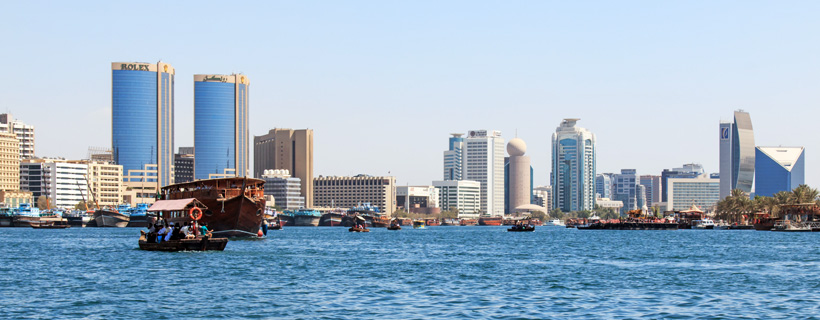
Press Releases
Wiring a smart city in the desert

June 21, 2010: Is Dubai the world’s smartest city? Maybe not in the sense that it mortgaged long-term infrastructure with $100 billion in very short-term debt, but "smart" in a way IBM, Cisco and other tech heavyweights would be envious of. One advantage of building a city from scratch is that each of Dubai’s 60,000 modern buildings is equipped with the state-of-the-art in lighting, HVAC, and security systems—all of which can be wired to the Internet.
Last week at the Realcomm 2010 conference in Las Vegas, a Dubai software firm named Pacific Controls revealed it had beaten Cisco to the punch in creating the world’s first "smart city" by connecting 20,000 of those buildings – including the world’s largest mall and largest building – to a cloud-based platform capable of controlling each remotely. Using its software to track and fine-tune electricity usage in nearly half of these buildings (some 9,000 in all), Pacific Controls has managed to cut their power bills by 20% — and is willing to do the same for any building in any city in the world.
The company has succeeded in adapting software-as-a-service to offering cities-as-a-service in the form of "Galaxy," which uses Java-based middleware and the Internet to connect building systems to its data centers, which can be located anywhere in the world. (One is in its LEED Platinum-certified headquarters in Dubai; the other in downtown Manhattan.) IBM intends to wire Dubuque, Iowa in a similar manner – incorporating municipal utilities into its system – and in instant cities across Korea, China and Saudi Arabia.
But Pacific Controls did it first, thanks in large part to a recent law decreed by Dubai’s ruling Sheikh Mohammed bin Rashid al Maktoum that all buildings in Dubai be monitored remotely in case of fire or public safety hazard. CEO Dilip Rahulan explained to me that building owners have rushed to sign up for Galaxy to be in compliance with the law – in addition to the 20,000 buildings his firm now controls, he is busy adding 120 a day. Those include the Dubai Mall at the base of the Burj Khalifa (which isn’t connected yet, but will be soon, he promises) and Dubai International Airport’s new Terminal 3, in addition to more than one hundred government buildings and four hundred vehicles retrofitted with GPS. In the event of an emergency, Galaxy will not only send an alarm to Dubai’s fire and police departments, but also track their arrival on the scene.
Rahulan founded Pacific Controls in Dubai in 2001, when it was already apparent that "real estate would take off exponentially there," and also that "the Internet would be the backbone through which city services would someday be delivered." His engineers in India and Dubai spent three years building Galaxy atop software originally used for transmitting telemetry data from aircraft (such as the last cryptic messages from the doomed Air France Flight 447, which vanished over the Atlantic last summer). For now, Galaxy’s use is limited to monitoring what he calls "the heartbeats of buildings," but Rahulan hopes it will expand to encompass municipal systems such as Dubai’s power grids in his Quixotic quest to wring cost savings and lower energy use from the least sustainable city in the world.
Perhaps Rahulan’s most important insight, however, is that smart buildings and smart cities can be run from anywhere. For this reason, Pacific Controls has started looking farther afield for customers, starting with the campus of Saudi Arabia’s new King Abdullah University of Science and Technology – the world’s largest LEED Platinum project. The company has signed a deal with the Carrier Company to remotely control ten thousand of its commercial HVAC systems, and in the meantime is busy bringing buildings in China, the U.K. and U.S. online. The ability to expand in every direction at once is the reason the $100 million company is growing at a rate of sixty percent each year.
Why stop there? While in Vegas last week to speak at the annual Realcomm conference (which started discussing smart building a decade before IBM found its "Smarter Planet" religion) Rahulan met with representatives of the General Services Administration – the landlord of 8,500 buildings owned by the U.S. government. Perhaps Galaxy will be coming soon to the federal courthouse near you.
By Greg Lindsay
About Fast Company
Fast Company is the world's leading progressive business media brand, with a unique editorial focus on innovation in technology, ethonomics (ethical economics), leadership, and design. Written for, by, and about the most progressive business leaders, Fast Company and FastCompany.com inspire readers and users to think beyond traditional boundaries, lead conversations, and create the future of business.
